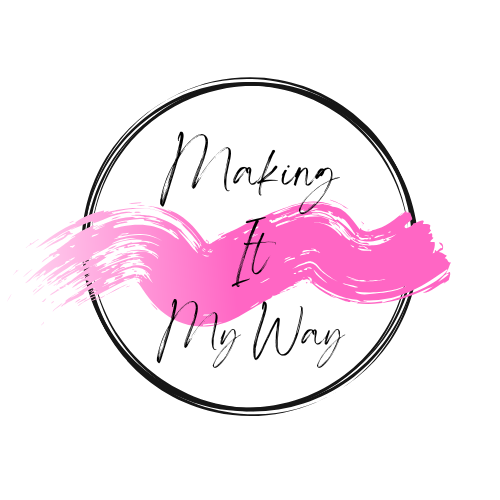There are many reasons to start keeping a journal. Let’s look at 5 cool reasons you should stark keeping a journal today. Did you know icons like Albert Einstein, Frida Kahlo, and Simone Biles used journals? A journal is more than a blank page. It’s a way to find yourself and clear your mind.
By writing down your thoughts, ideas, or interesting events every day, even for just five minutes, you can grow and reflect.
Millions use journals every day. But, if you don’t this article shares five reasons to start your own journal. It can change how you face life’s challenges.
Writing in a notebook or typing on a screen helps you find resilience, creativity, and understanding all while lowering stress levels. Starting this simple habit can help you grow.
The Power of Putting Pen to Paper in Our Daily Lives
Writing it down is more than just jotting down thoughts. It’s a brain workout. Just like our body our brain needs exercise too. When we write by hand, it connects our brain in ways typing doesn’t. Stanislas Dehaene, a neuroscientist, says handwriting boosts learning areas in the brain. This makes our ideas last longer (aka remember more.)
Keeping a daily journal has many health benefits. Studies show students remember more when they write by hand. It also clears our minds. 5 reasons to start keeping a journal will hopefully help you unlock the key to your potential. Duke Health found that writing about good moments makes us happier and more focused.
- Neural pathways strengthen through handwriting, aiding memory retention
- Handwritten journaling builds creative expression
- Physical writing connects us to the present moment
Research by James and Engelhardt (2012) shows handwriting improves memory and spatial skills. Just five minutes a day can make our thinking sharper. Journaling is not a task; it’s a way to unlock our full potential. Let’s value the quiet power of pen and paper with learning 5 reasons to start a journal. Your journal is a path to a sharper mind and a calmer spirit.
5 Reasons to Start Keeping a Journal That Will Transform Your Life
Imagine unlocking hidden potential, gaining perspective, and rewriting your future—just by picking up a pen. Journaling is more than a habit. It’s a tool that changes your mind, backed by science and thousands of stories of change. All it takes is a few minutes a day. Let’s take a look at 5 reasons to start keeping a journal works:

1.How Writing It Down Creates Clarity and Insight
When you are writing it down, your brain gets clearer. Writing things down makes you see patterns in emotions or habits. Entrepreneurs use journals to make vague dreams into real plans. Try this: journal before bed to clear your mind. Over time, you’ll see what your subconscious is trying to tell you.
The Science Behind Journaling
Neurological research shows writing helps solve problems, not just feel emotions. Here’s what science says:
- Reduces stress by 30% by organizing thoughts
- Boosts memory retention by 20% through reflection
- Improves emotional control by tracking mood shifts
Stories of Transformation from Dedicated Journal Writers
Think of the CEO who beat burnout by journaling every day. Now, they say journaling helped their business thrive. Or the artist who found new ideas by share your story in their journal. These stories show how journaling:
- Helps entrepreneurs clarify goals
- Encourages self-compassion through past entries
- Showcase growth over time
Every entry is a step toward designing the life you want. Just write see where the pen takes you. Great ideas often come from nothing.
2.Enhanced Mental Health and Emotional Processing
Journaling is more than just tracking events. It’s a way to help your mind. By writing down your thoughts, you get mental benefits. These benefits help you deal with stress, anxiety, and negative feelings.
This simple act lets you see your emotions clearly. It turns confusing thoughts into easy-to-understand insights.

- Emotional clarity: Writing down fears or frustrations reduces their grip on your psyche. Helping you cope with clarity.
- Health benefits extend beyond the mind: studies show expressive writing lowers blood pressure and strengthens immune function.
- Self-compassion grows as you witness patterns and progress over time.
Imagine a tool that costs nothing but helps fight depression and anxiety. Journaling helps by giving emotions a safe place to go. When you write about your feelings, they start to lessen.
Think of it as emotional cleaning. It lets your mind focus on finding solutions instead of getting lost in thoughts.
“Expressive writing strengthens immune cells and reduces asthma symptoms.”
Journaling makes you emotionally stronger. It helps you track your moods and understand what triggers them. A professional Therapist will often recommend keeping a journal as a tool for a better understanding what really drives your emotions.
You also hear about food journals more and more. Keeping track of your eating habits helps keep you accountable. Most dieting success comes from being truthful about what you eat. Abs are made in the kitchen after all.
Start small. Just three minutes a day can change your view and help you feel better both mentally and physically.
3. Boosting Creativity and Problem-Solving Through Daily Writing
Using your journal can unlock new creative ideas. When you’re stuck, try free writing or mind mapping. These methods let ideas flow freely.
Write without stopping. This helps your mind explore new paths.
Breaking Through Creative Blocks with Journal Techniques
Start with prompts like “What if?” or “Imagine this…” to spark new ideas. Lists or sketches in your diary can organize your thoughts.
Historically, innovators like Leonardo da Vinci used journals to create new ideas. Their journals mixed art, science, and wild ideas. This shows how writing can turn fragments into masterpieces.
Your Journal as an Idea Incubator
Over time, your journal will show hidden patterns. Look back at past entries to find recurring themes or ideas worth revisiting.
A 2023 study in Creativity Research Journal found that writing down ideas’ boosts recall and innovation by 37%. Use bullet points or color-coded sections to grow your ideas.
Connecting Distant Thoughts in Your Diary
Scattered notes in your journal can lead to breakthroughs. For example, a writer might write about a dream and then a work challenge. The connection could inspire a novel or a business idea.
Highlight connections with arrows or sticky notes. This helps you see links between different ideas.

Every entry is a step forward. Writers will often write down any thought they have at any given time. Maybe it will meld into their current work, or maybe it will be a new beginning for the next piece. Whether you’re sketching, brainstorming, or reflecting, your journal turns thoughts into actions. Start small: spend a few minutes daily writing. Watch your problem-solving skills grow.
4. Preserving Memories and Building a Legacy of Personal Stories
Every day has moments we should remember. Like laughter, lessons, and small details that shape us. Diaries keep these moments alive, turning them into lasting stories.
Imagine finding joy in a first birthday or learning from a big win again. This is what happens when we keep our journey alive.

Capturing Moments That Would Otherwise Be Forgotten
A simple notebook can hold a lot of history. Think of a mom writing letters to her kids before they were born. She filled her diaries with hopes and milestones.
Without her writing, those memories might be lost. Each entry keeps not just events, but the feelings that made them special.
Creating a Time Capsule for Your Future Self
“The stories we write today become the compass for tomorrow.”
Just like Socrates’ ideas lived on through his students, your words can too. Looking back at old pages shows how you’ve grown and faced challenges.
What seems small today might show big patterns and purposes later. Come on people…we all saw the notebook. This is a no brainer on how special writing your story will be for the ones you love.
How to Share Your Story with Future Generations
- Use plain notebooks—no need for perfection
- Include dates, feelings, and small details
- Store journals in safe places for longevity
These stories become treasures. A child years later might find comfort in your words, feeling connected to their roots. Your legacy is a gift to those who come after, showing them your heart and mind. There is a song or maybe a poem out there about dying twice. Once physically and the second is the last time someone speaks your name in memory. Keeping a journal for your family to pass on is truly a way to live forever. Think of Anne Frank.
5.Achieving Goals and Tracking Progress with Keeping a Journal
Writing in a journal makes dreams real. It helps you focus on what you want. This makes you feel stronger and more aware of yourself.
- Start with a 5-minute journal to plan your day and think about your progress.
- Use the Artist of Life Workbook weekly to check your goals and change your plan if needed.
- Pair with Notion or moon phase journals to see long-term patterns.
Writing down your wins, no matter how small, in your journal trains your brain to see chances. Seeing your past successes makes you more confident. And learning from failures helps you grow.
Tools like Lavendaire give you prompts to keep going. Staying regular changes your habits for good. It becomes your lifestyle not a chore. Your journal shows your growth and proves every step counts.
Your Journal Journey Begins Today: Simple Ways to Start Writing
Starting a journal is easy. You can use a notebook, app, or even voice memos. Just picking up a pen or opening a digital page starts the mental benefits. Here’s how to get started:
Start small. Write for just three minutes a day. You can also make a gratitude list or draw feelings. Emotional clarity comes from being consistent, not complicated. I like to do this in the morning with my coffee.
Use prompts like “What surprised me today/yesterday?” or “What do I need to release?” to get ideas. This helps spark creativity.
Choose what works for you. Digital apps like Day One or Notion are great for tracking goals. Physical journals can be soft, blank, or colorful. You can even mix both if you like. Sometimes it’s a really cool pen that gets you excited. Whatever it takes.
Don’t worry if you miss a day. Journaling is about expressing yourself freely. It’s okay to track goals, doodle, or write about frustrations. Over time, you’ll see patterns and gain insights.
Make journaling a part of your routine. Keep it by your bed to write about dreams or jot down notes during lunch. Even simple tasks like making a grocery list can become a chance to reflect. Writing helps you focus and understand yourself better.
Every entry is a step toward clarity. Let your curiosity lead you. I hope these 5 reasons to start keeping a journal has helped you understand the many important benefits journaling has. The mental benefits of journaling are waiting for you. Start small, stay curious, and watch how you grow. Make it your way!



